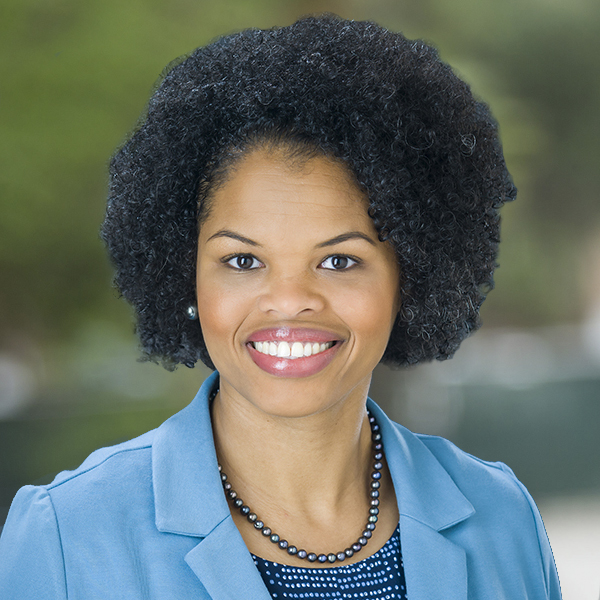Dr. Lakiesha Williams, professor and associate chair for graduate studies, has been named a 2024 Biomedical Engineering Society (BMES) Fellow. BMES will honor this year’s class of fellows during the society’s annual conference in Baltimore, Maryland, on October 24. Each new fellow will also receive a BMES Fellows pin.
The Fellow grade of membership is a prestigious honor recognizing outstanding achievement in biomedical engineering. Fellows have demonstrated impactful achievements and made significant contributions to the biomedical engineering community and to BMES. They are active leaders in the profession and within the Society. Williams is one of 12 inductees into the 2024 BMES class of fellows.
Williams leads the Tissue Mechanics, Microstructure, and Modeling Laboratory (TM3), where her research focuses on studying injury to the brain and cranial dura mater, particularly their relationship to Alzheimer’s disease and related dementias. Her work examines damage mechanisms associated with high-impact forces and intense vibrations on the brain. Her areas of expertise include neurotrauma, biomechanics, and bio-inspired materials research.
The TM3 Lab employs cutting edge imaging techniques, advanced mechanical characterization tools, and computational modeling to reveal hierarchical structural and functional changes in the brain and dura mater. The lab’s work aims to:
- Identify key insights into the connection between traumatic brain injury and later life brain disorders
- Characterize cranial dura mater to optimize grafts and explore new treatment options for brain disorders
- Utilize bio-inspired design to create injury-protective systems for soldiers and athletes
“I’m incredibly honored to be named a BMES Fellow,” Williams said. “This recognition is a testament to the hard work of my research team over the years and our commitment to advancing the understanding of traumatic brain injury and aging. I look forward to continuing to contribute to the biomedical engineering community and inspiring the next generation of researchers.”
Williams was selected for her exceptional achievements in biomedical engineering, as well as her leadership and service to BMES. Her innovative research has broad implications, particularly in understanding how cranial dura mater and the brain respond to injury in addition to applications in bio-inspired materials.
Congratulations, Dr. Williams!

